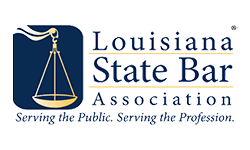
After an accident, you might need to interact with an insurance adjuster. As the U.S. Bureau of Labor Statistics states, an insurance adjuster calling is a part of their job to determine the facts of the accident.
While you may want to be helpful, keep in mind that their job is to protect the insurance company’s interests. They want to minimize any payouts.
Over the years, we have handled many accident claims for our clients at Bianca | Matkins. We know what could help or hurt your case. If you want to protect your interests, avoid saying certain things during these conversations.
Are you wondering what not to say to the insurance adjuster after an accident?
Let’s explore what you should steer clear of when dealing with an insurance adjuster.
Never Admit Fault
If there is one rule that you should always abide by, never admit fault to the insurance adjuster. Even if you believe you were partially responsible, never make any statement that could be deemed an admission of guilt. Keep in mind that adjusters are trained to get information about an incident.
If you make any hints of fault, that could weaken your claim. In some cases, it could even lead to a denial of compensation.
When talking to an adjuster, always focus on giving factual details without discussing fault or blame. You always want to stick to the facts of the case. Making statements centered around fault could be seen as an admission of guilt. In turn, that can have serious implications for your claim.
Don’t Give Specific Details About Your Injuries
When discussing your accident, you always want to be cautious about oversharing. Yes, you will need to talk about the injuries resulting from the incident. However, you will want to avoid diving into your medical history or speculating about diagnoses. Keep it simple. You will want to describe the injuries you sustained, the treatment you’ve received, and any ongoing symptoms.
If the adjuster presses for more details, you have the right to decline politely. You can always direct the adjuster to look at your medical records for the necessary information.
Avoid Speculating on Damages
Along with discussing your injuries, the insurance adjuster will also assess property damage. Once again, you will also want to avoid speculation about whether your vehicle can be repaired or needs a replacement for your personal belongings.
This is the time to provide accurate information about the incident. Make sure to give them the accident’s date, location, and circumstances. If you’re unsure about specific details, that is okay.
Often, the adjuster will investigate the incident and fill in any details. With this information, the adjuster will evaluate the damage based on evidence and professional expertise.
Do Not Consent To Being Recorded
Sometimes, an adjuster will want to record your conversation. You will want to decline their request. While it is a standard and legal practice, these recordings could hurt your claim. Like any statement, these conversations could be used against you in the future. This can be damaging, especially if you have inadvertently admitted fault.
Many times, it is better to provide a written statement. You may even be able to answer the adjuster’s questions via email.
In these two scenarios, you can control over the information you share. You will also want to proceed cautiously and consider the potential implications of being recorded.
Keep Responses Short and Focused
During conversations with an adjuster, avoid long, drawn-out answers. Stick to concise replies. You always want to refrain from rambling or volunteering unnecessary information. An adjuster may use long responses to extract additional details that could weaken your position.
Once again, you will always want to stick to the facts. If you don’t know the answer to a question, you could say, “I’ll need to check and get back to you.”
Remember that adjusters are trained negotiators. You will want to stay professional and avoid emotional outbursts during discussions.
Other Tips To Follow
Dealing with insurance adjusters can be a tricky process. Being involved in an accident, especially one that someone caused, often leads to raised emotions. You will always want to stay calm during any interactions. Emotions can cloud your judgment, and you might say the wrong thing. You need to remain composed and level-headed during any of these conversations.
In almost all situations, you may want to consult with an attorney. If you feel that the negotiation process is overwhelming or issues are involved, seeking legal advice can be beneficial. When you work with a personal injury attorney in Baton Rouge, they can handle all communications with the insurance company.
Insurance adjusters represent the interests of their company. While you may want to cooperate, be cautious about what you say to avoid potential pitfalls that could harm your claim.










